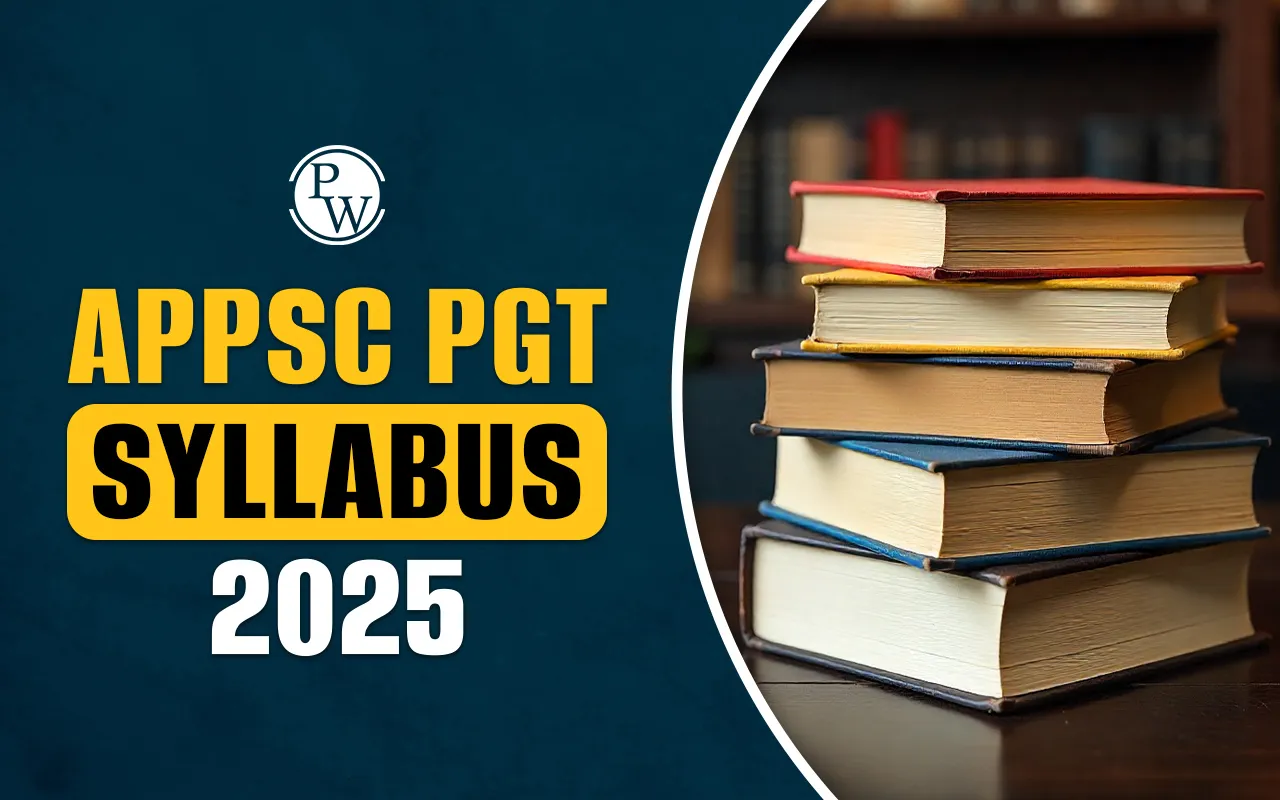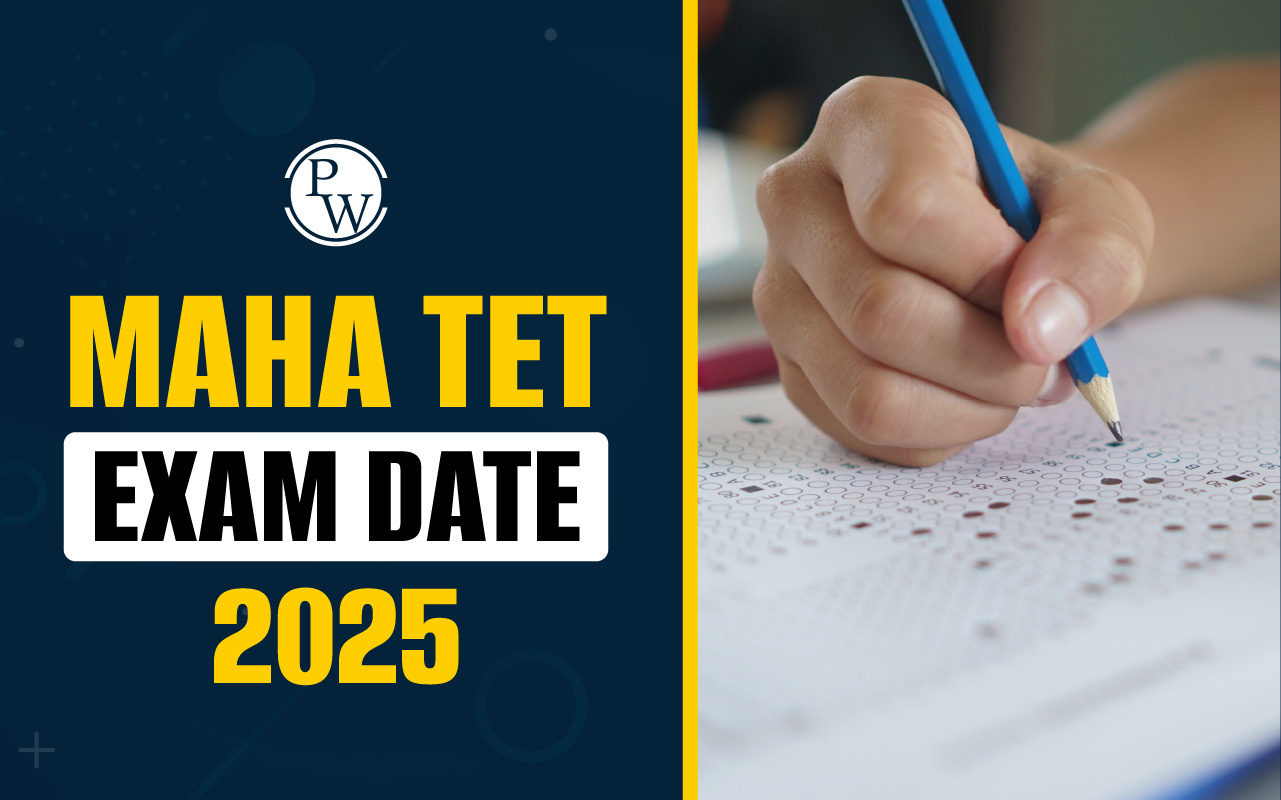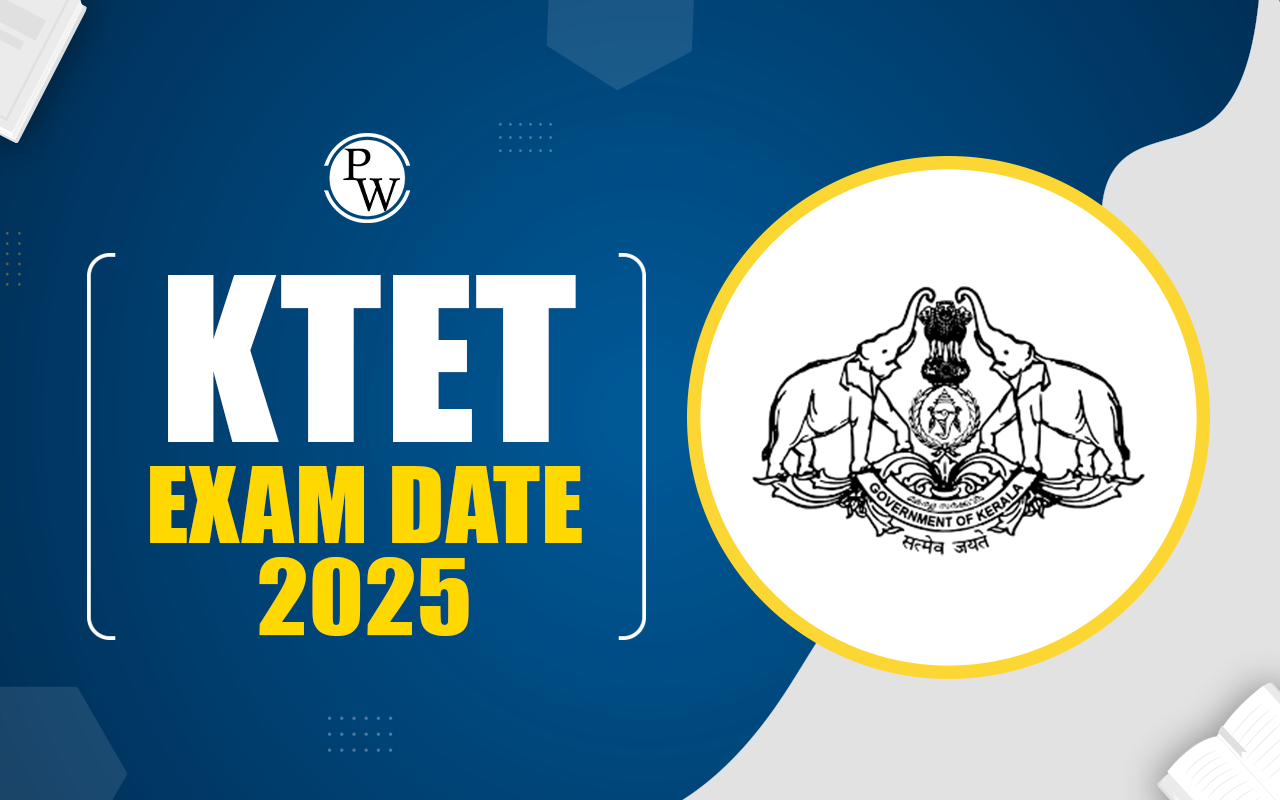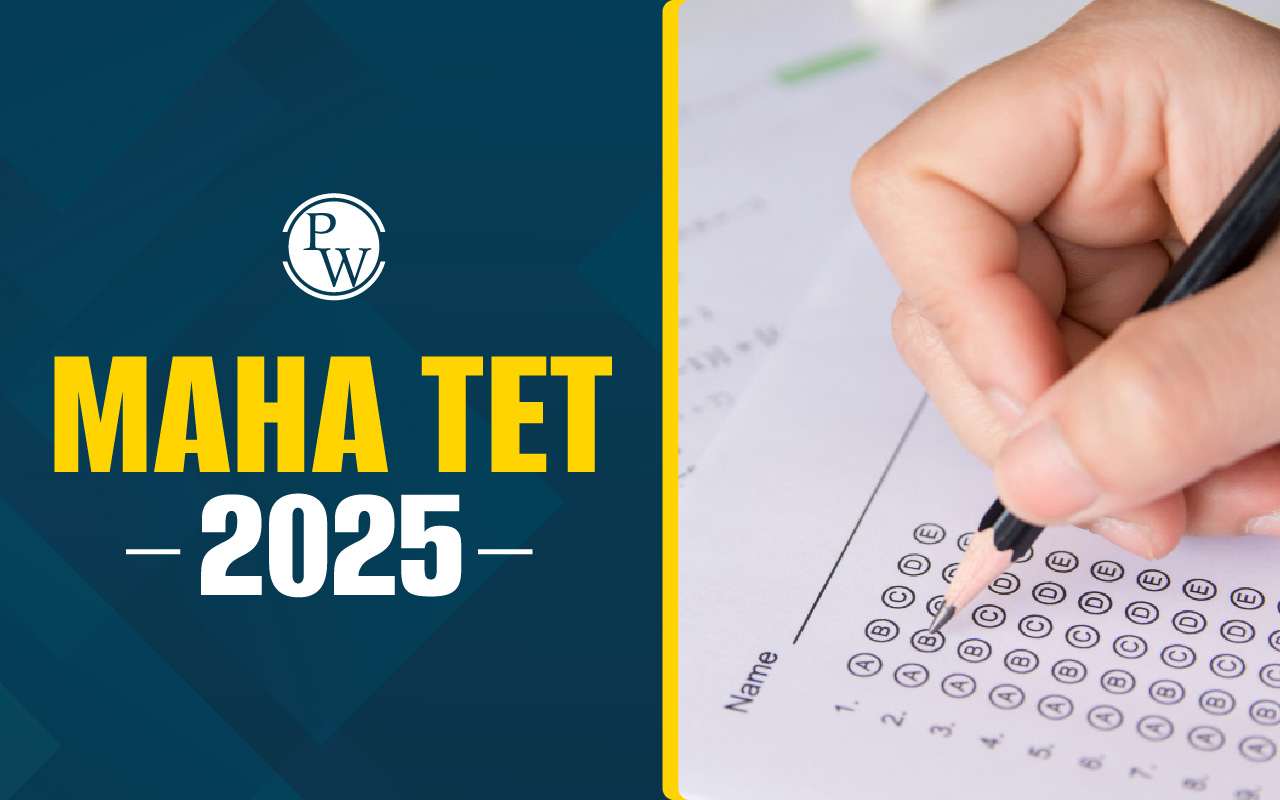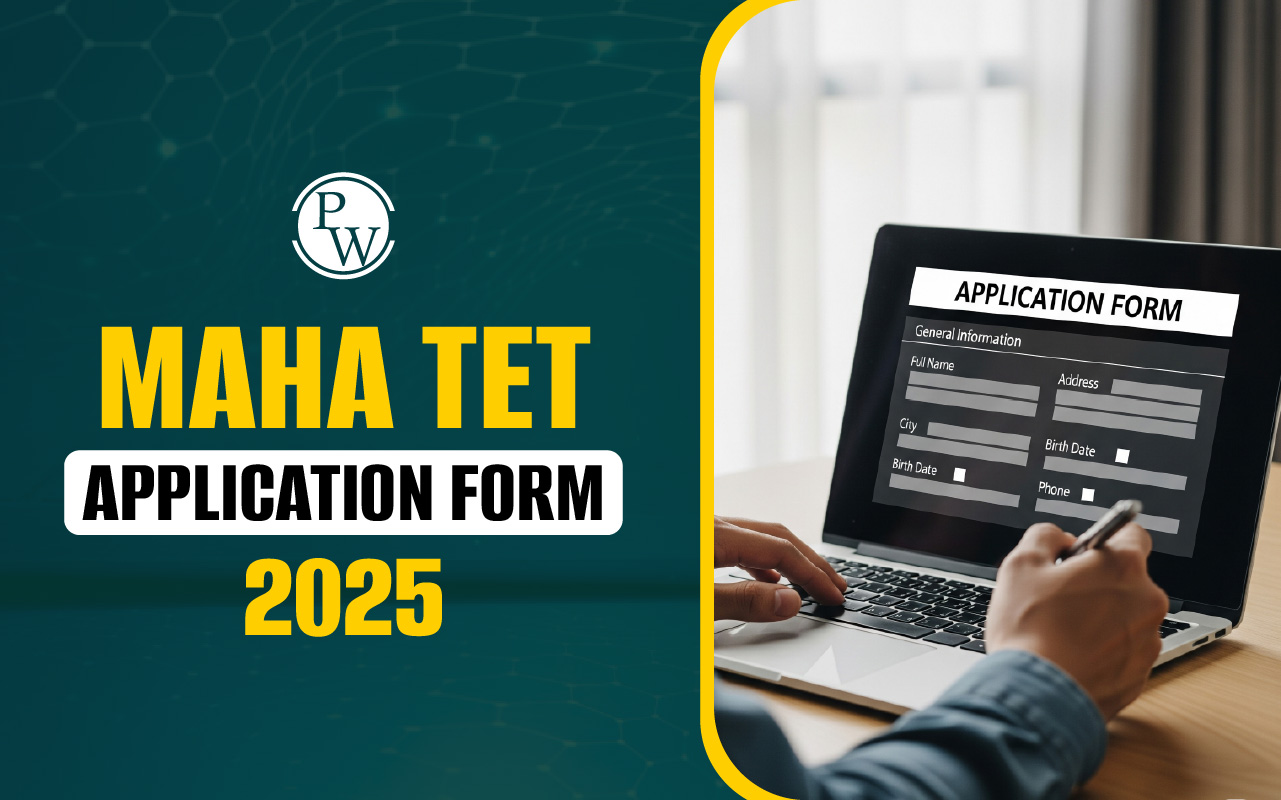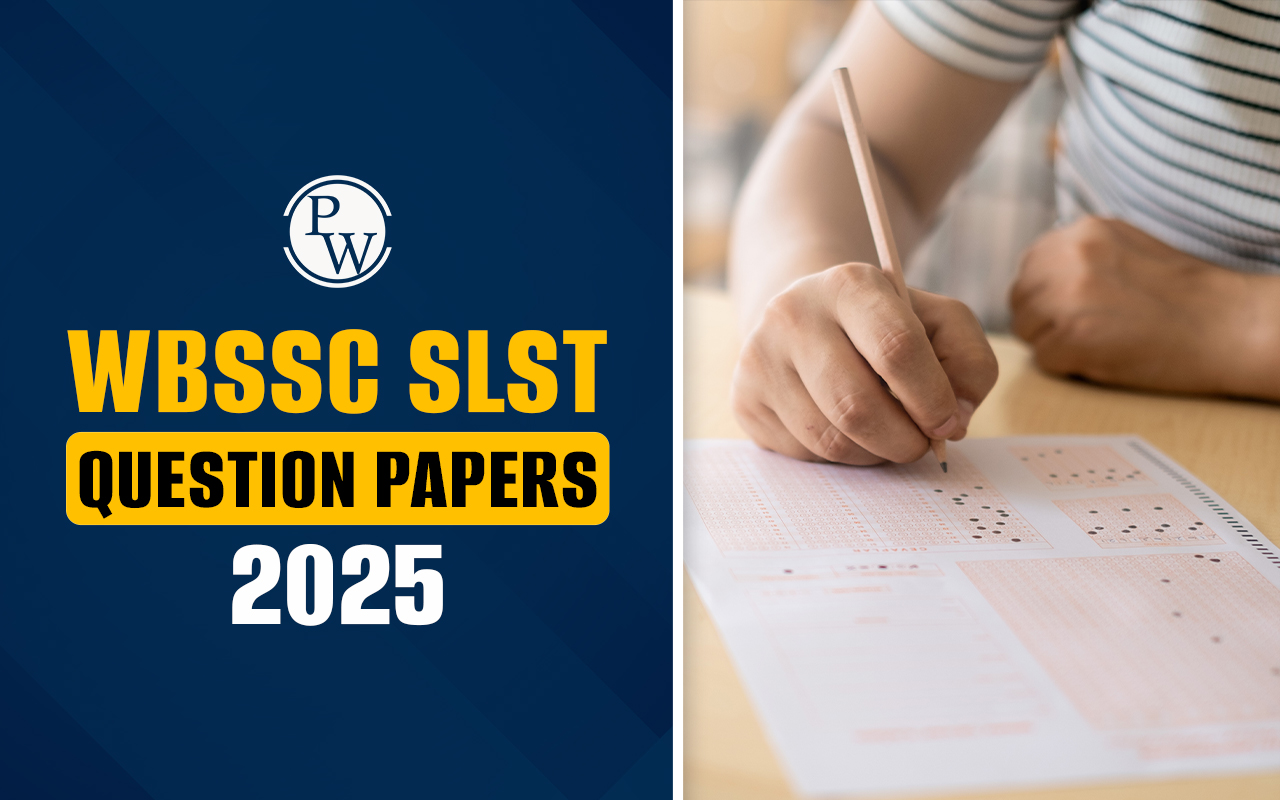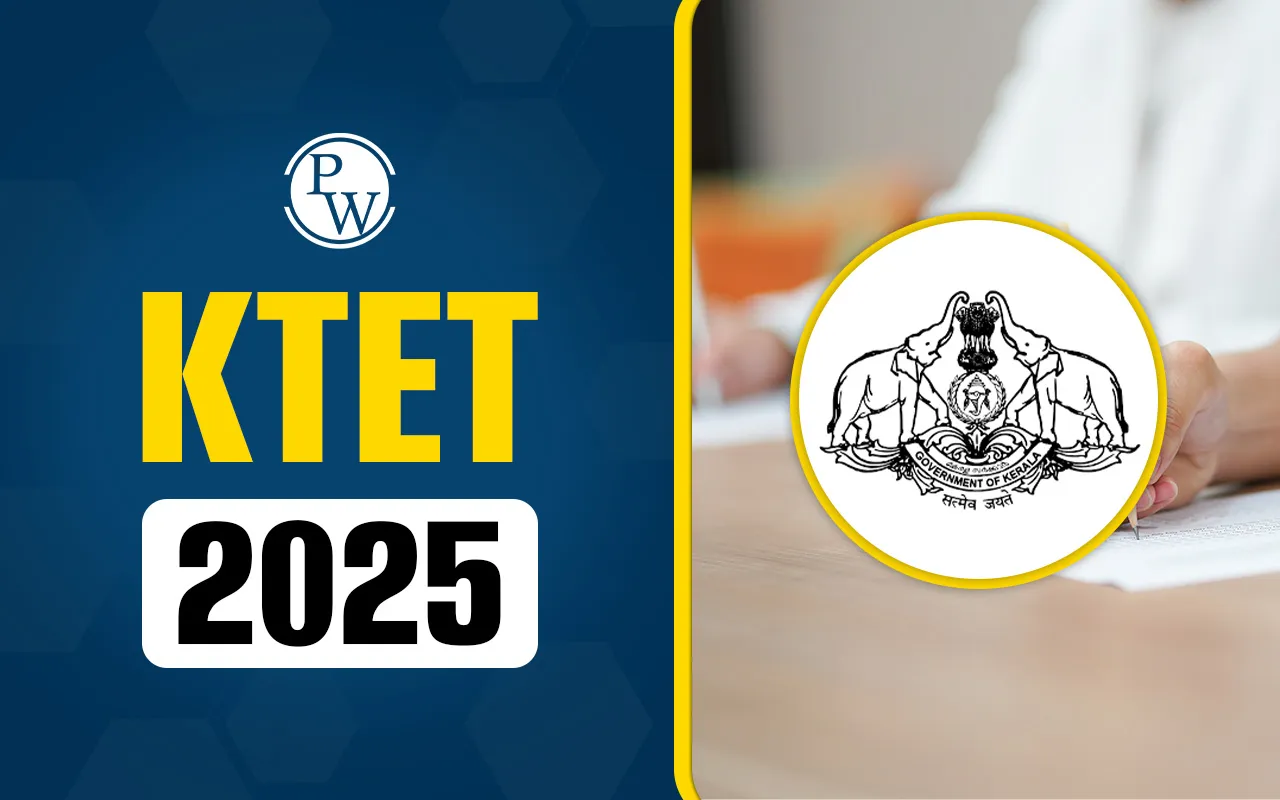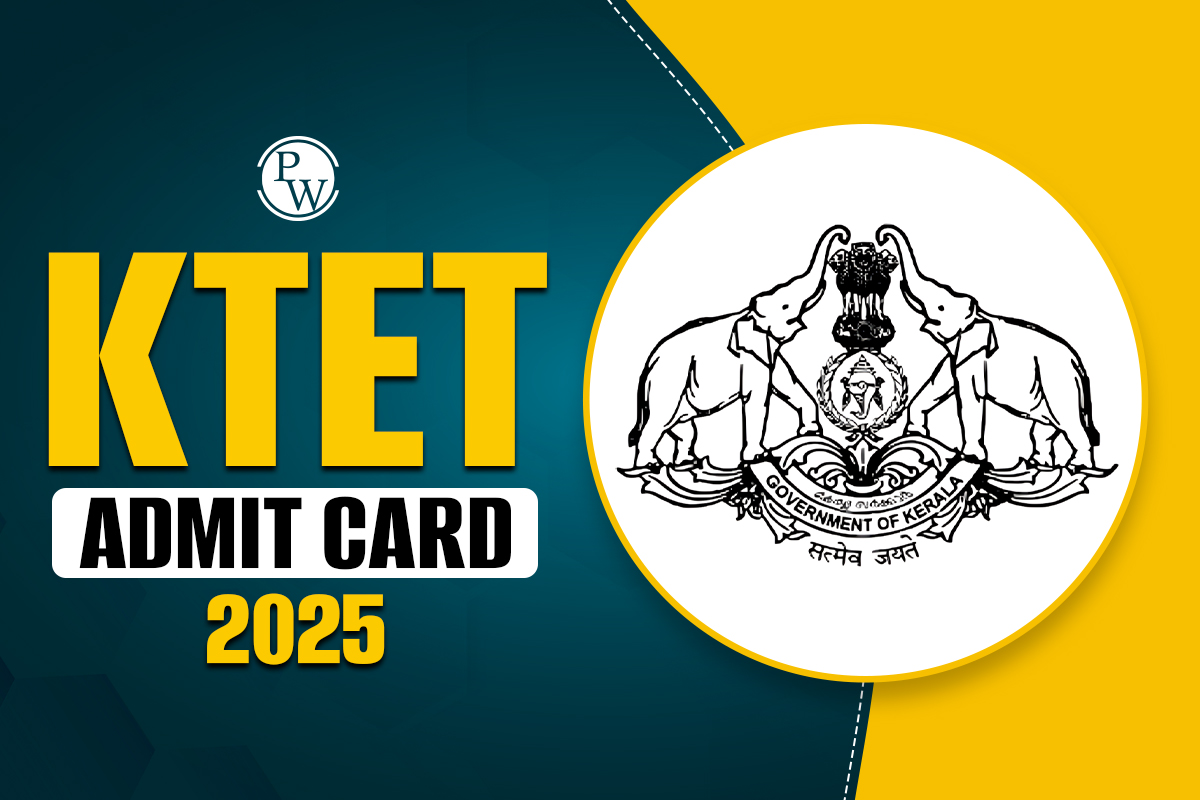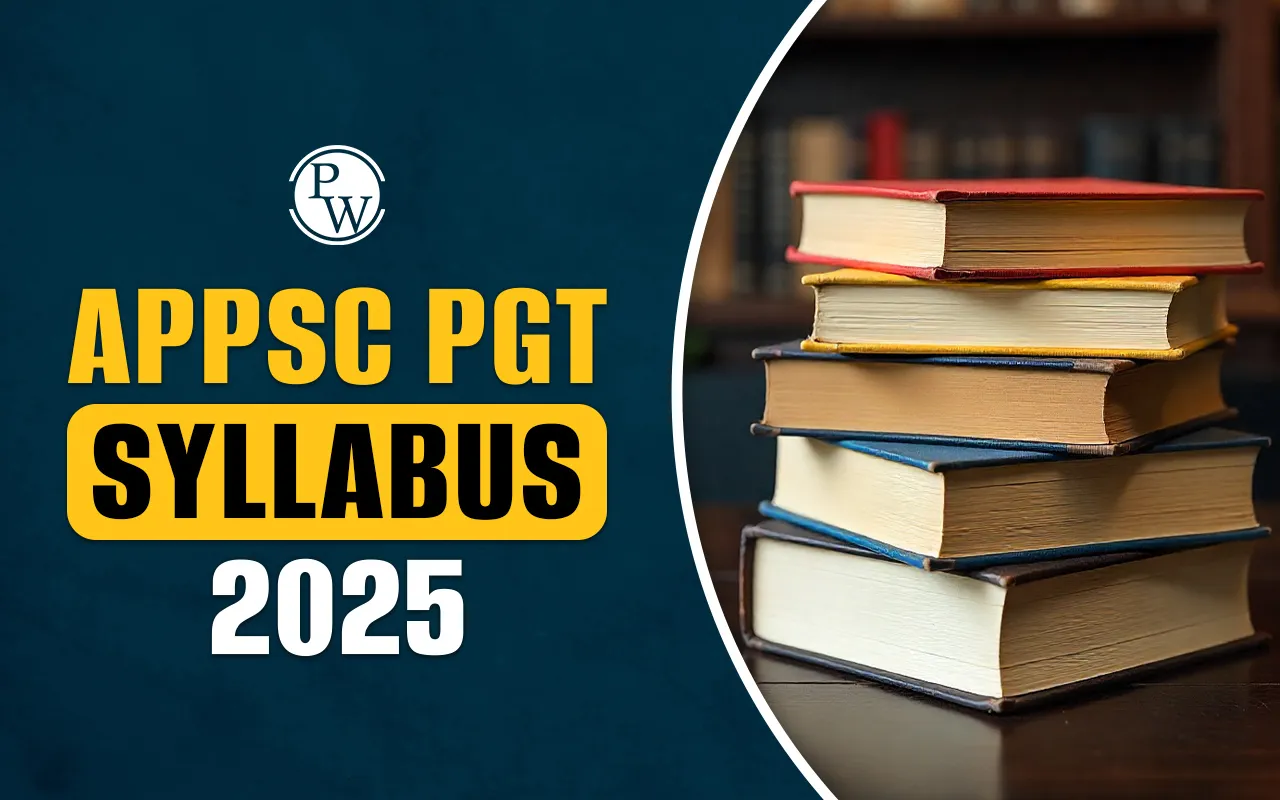
APPSC PGT Syllabus 2025: The syllabus for APPSC Post Graduate Teacher (PGT) is intended to examine the candidate's knowledge of general subjects and their specific subjects. Generally, there are two sections in the syllabus: General Subjects and Concerned Subject. General subjects include General Knowledge, General English, current events, Indian polity, Indian economy, and Indian history.
The concerned subject section deals with the candidate's postgraduate subject, such as Physics, Chemistry, Mathematics, History, Political Science, or Commerce in-depth. The exam pattern has objective questions for general subjects and descriptive papers on the concerned subject and the viva-voce exam will weigh on the candidate's Subject Knowledge and also assess the candidate's teaching aptitude.
APPSC PGT Syllabus 2025 Overview
The APPSC PGT Syllabus for 2025 is extensive and assesses a candidate’s knowledge, analytical ability, and appropriateness for teaching roles/positions. Students can divide their preparation into sections based on the marking scheme to aid with prioritization and practice. The syllabus layout ensures comprehensive assessment through both objective and descriptive formats.
| APPSC PGT Syllabus 2025 Overview | |
| Feature | Details |
| Organizing Body | Arunachal Pradesh Public Service Commission |
| Exam Name | APPSC PGT Recruitment 2025 |
| Posts Available | Post Graduate Teacher (PGT) |
| Total Vacancies | 111 |
| Exam Structure |
3 Papers: 1. General English, General Knowledge, Aptitude & Pedagogy (150 marks Objective) 2. Subject Paper I (150 marks Descriptive) 3. Subject Paper II (150 marks Descriptive) |
| General Subjects Covered | General English, Current Affairs, General Knowledge, Aptitude, Pedagogy |
| Official Website | https://appsc.gov.in |
APPSC PGT Syllabus PDF
For detailed preparation, candidates should always refer to the official APPSC PGT Syllabus PDF. The syllabus PDF will be available for download directly from the Arunachal Pradesh Public Service Commission’s website https://appsc.gov.in. A direct link to download will be available here once the syllabus is announced.
APPSC PGT Syllabus 2025 (Subject Wise)
As per the past year’s trends, the syllabus consists of two components: general papers and a subject of your choice. Each of the sections assesses a different skill level required for effective post-graduate teaching.
1. General Paper-RT (General Awareness and Pedagogy):
A. General Awareness: This section will test the candidate’s general awareness about their surroundings and how they affect society. It will include questions on current affairs, recent events, everyday observations, and important issues. Topics will cover international, national, and North-East India-related general knowledge.
B. Pedagogy:
-
Understanding the Learner growth, maturation and development, Domains of
-
Development: Physical, Cognitive, Socio-emotional, Moral, etc., deviations in
-
development and its implications, Understanding Adolescent behaviour.
-
Understanding Teaching Learning - Principles of Learning, Theories - Behaviourism,
-
Cognitivism and Constructivism, Role of teacher, role of learner. Nature of teacher-student relationship, Factors affecting learning.
-
Teaching strategies & methods, Active learning, Classroom environment, Classroom
-
Communication, Skill Components in Teaching.
-
Planning instruction - session plan, lesson plan.
-
Curriculum & Syllabus, Outcome-based curriculum.
-
NEP 2020- implications for schools.
-
ICT in teaching-learning, Instructional resource.
-
Assessment & Evaluation - Formative, Summative, Self-assessment, Peer assessment,
-
Providing & receiving feedback, NRT, CRT, Direct & Indirect assessment, Assessment tools, Constructive alignment.
-
Teacher as a mentor, academic leader, counsellor, promoting holistic development of learners.
2. Concerned Subject (Paper I and II- Descriptive)
-
These topics deal with fundamental post-graduate topics on your major. For example:
-
English Literature, linguistics, literary criticism, and methods of teaching language.
-
Hindi: literature, grammar, composition, and methods of teaching in Hindi.
-
History, Political Science, Geography, Economics: Theory, contemporary issues, regional context
-
Mathematics, Physics, Chemistry, Biology: Higher formulas, concepts, science instruction, science instruction pedagogy.
-
Commerce, Agriculture, Horticulture: Theories, the practice, the study.
APPSC PGT Exam Pattern
The APPSC PGT Exam Pattern is designed to test subject knowledge and teaching ability. The selection process commonly consists of a written exam, followed by a Viva-Voce and teaching demonstrations.
| APPSC PGT Exam Pattern | ||
| Paper/Section | Type | Maximum Marks |
| General English, General Studies, Aptitude, and Pedagogy | Objective | 150 |
| Concerned Subject – Paper I (Descriptive) | Descriptive | 150 |
| Concerned Subject – Paper II (Descriptive) | Descriptive | 150 |
| Viva-Voce and Classroom Teaching | Practical | 50 |
| Total | 500 | |
APPSC PGT Marking Scheme
Being aware of the APPSC PGT Marking Scheme is useful for preparation. In the objective-type papers each wrong answer has a negative marking. Each correct answer carries 1 mark. The descriptive-type paper is graded based on clarity of content, structure, and depth of knowledge within the subject.
The marks for viva-voce and classroom teaching are considered based on how candidates perform and present their teaching ability.
| APPSC PGT Marking Scheme | ||
| Subject/Paper | Maximum Marks | Type of Questions |
| General English, General Studies, Aptitude & Pedagogy (Objective) | 150 | Objective Multiple Choice Questions (MCQs) |
| Concerned Subject Paper I (Descriptive) | 150 | Descriptive |
| Concerned Subject Paper II (Descriptive) | 150 | Descriptive |
| Viva-Voce and Classroom Teaching | 50 | Oral/Interview |
| Total | 500 | |
